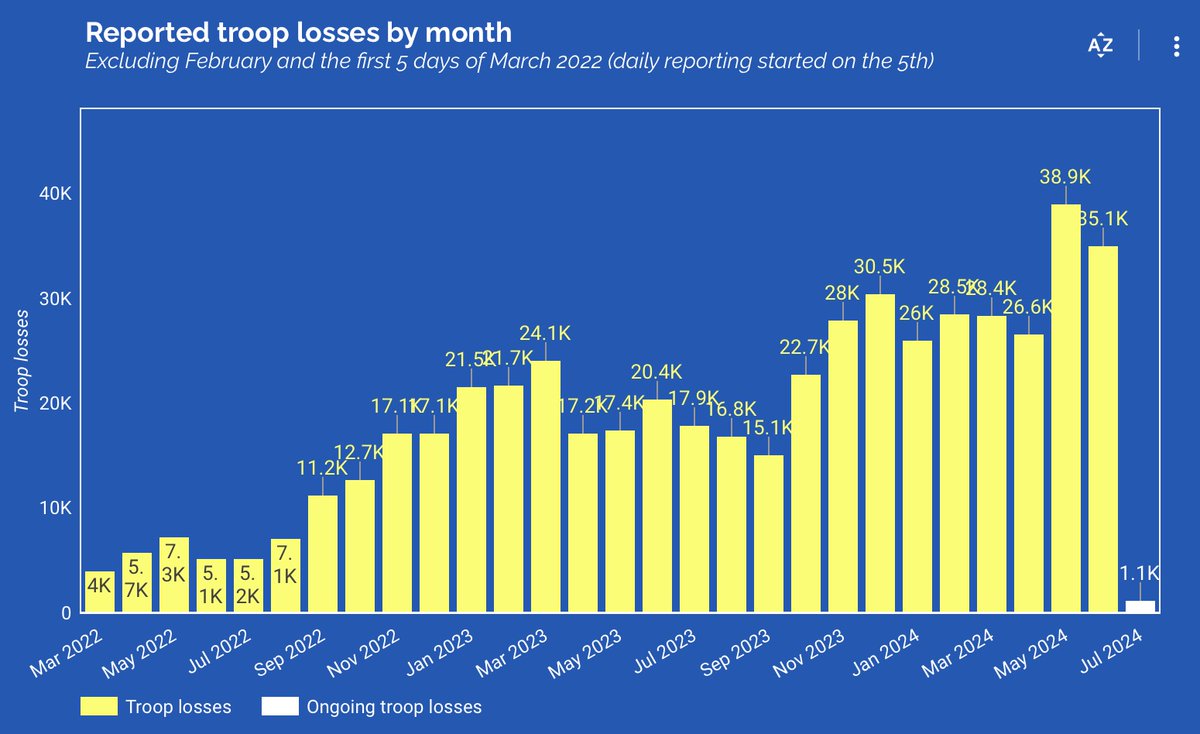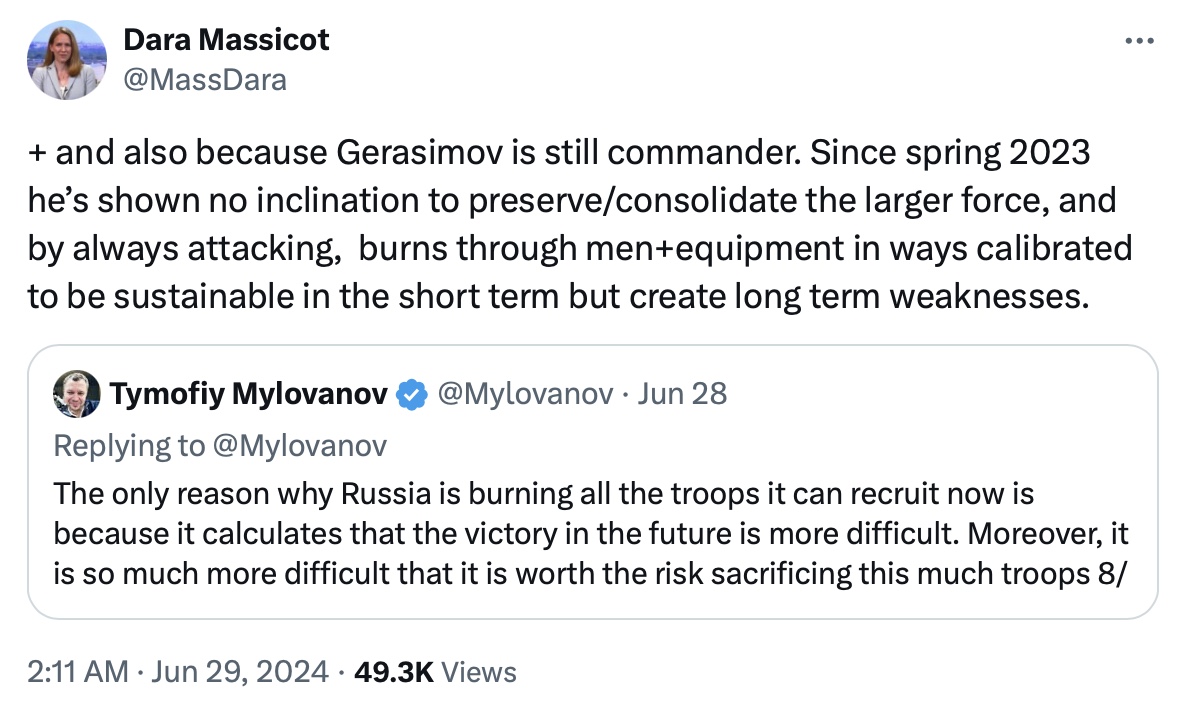Back in May, I explored the likely Russian objectives for its military operations in 2024, and how it was progressing towards them. Russia has built strategic momentum with its assaults on Ukraine in the past six months. However, they have largely failed to exploit their opportunties. 1/12 🧵 🇺🇦

2/ Russia has made some progress on the ground and yet even this has come at massive costs. For the gain of around 513 square km, they have lost around 180 thousand personnel. Losing 360 people for every km is a poor return on investment - in any war.
3/ And, as this graph from @ragnarbjartur shows, Russian casualties have only increased in the past six months during its 2024 offensives. 

4/ Russia has failed to stop Ukrainian strikes on Russian bases and oil infrastructure in Russia, and is failing in its campaign to defend against strikes against #Crimea.
5/ Russia does however have a very robust strategic influence and misinformation campaign. But, even that is yet to persuade Ukraine's key supporters to reduce their support.
6/ Russia has probably developed a better approach to strategic adaptation than the Ukrainians have. This is allowing them to out-produce the Ukrainians and to continuously recruit. But these are only providing marginal improvements in the tactical and operational effectiveness of the Russian military, and are disproportionate to the massive losses in manpower and equipment.
7/ The Russian military had a significant opportunity at the end of 2023 after Ukraine's military culminated in its counter offensive in the south and with the shortfalls that in manpower and munitions that began to tell in 2024.
8/ And yet, the Russians over the last six months have generally failed to capitalise on this convergence of opportunities. And in squandering such enormous quantities of troops in lots of smaller actions across the front line, Russia is less able to build a better quality, large force that might be able to undertake larger scale offensive operations. 
https://x.com/MassDara/status/1806722109474799636

9/ This was probably Russia’s best opportunity to make significant gains on the battlefield which it could then turn into significantly increased political and diplomatic pressure on Ukraine for peace negotiations.
10/ Russia may still have time to conduct offensive activities against Ukraine before they culminate. But, given Russian losses so far, the lack of any new, wide-ranging offensive doctrine, and that Ukraine’s strategic prospects are improving, Russia appears to have blown what might have been its last chance to strike a decisive blow against Ukraine in this war.
11/ The question now is whether #Ukraine, which seeks to liberate more of its territory occupied by Russia, can build all the different physical, moral and intellectual elements of offensive combat power to do better than Russia has either later this year or in 2025?
12/ You can read my detailed special assessment on this topic (for free) at Futura Doctrina.
mickryan.substack.com/p/has-russia-b…

mickryan.substack.com/p/has-russia-b…

• • •
Missing some Tweet in this thread? You can try to
force a refresh









